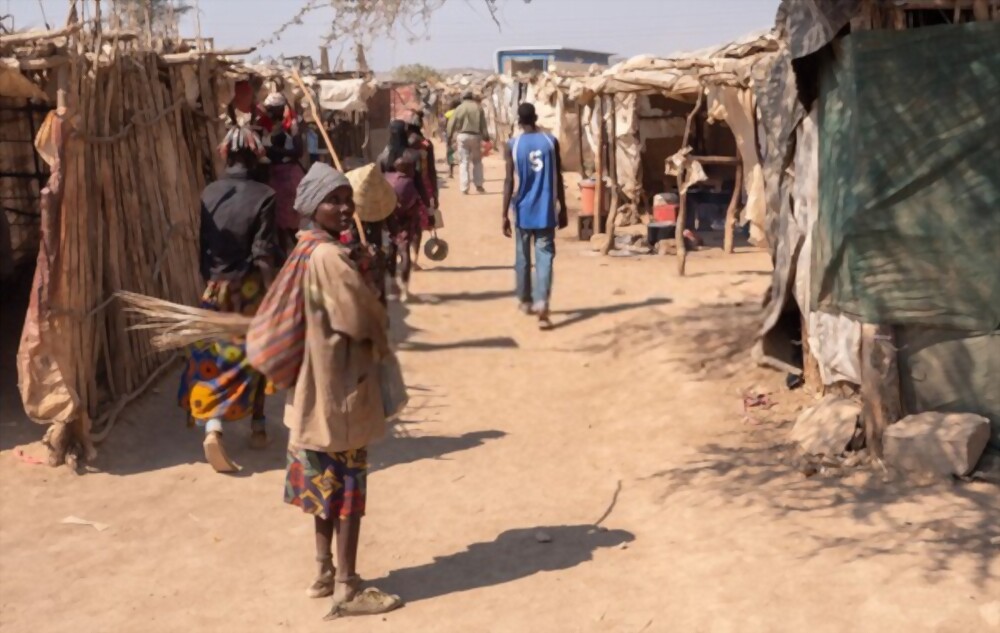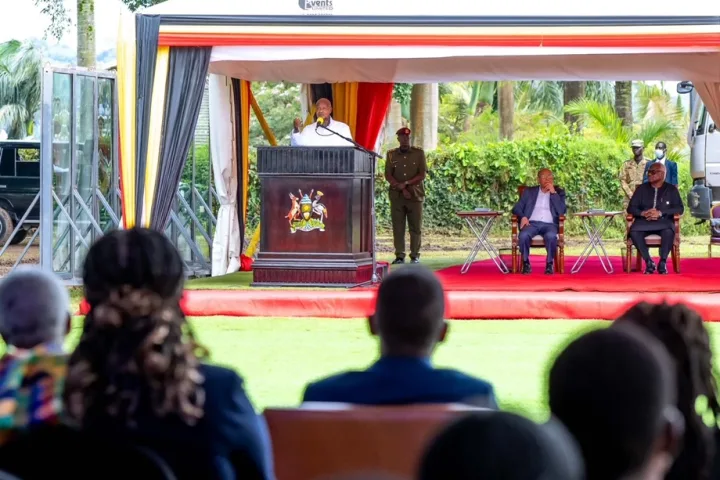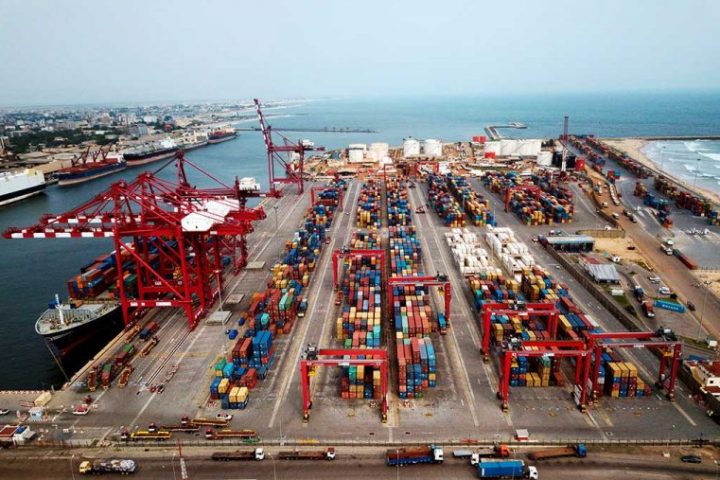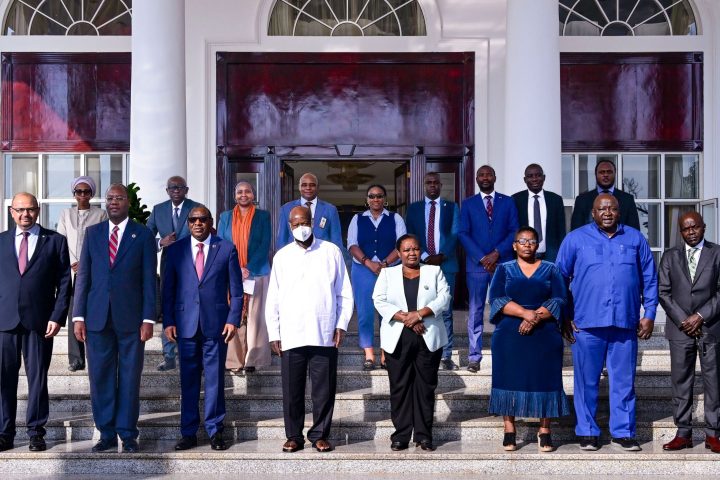THE United Nations has called for concerted efforts to rid Nigeria and the rest of the world of suffering, hunger and poverty, as the world marks the International Day for the Eradication of Poverty.
UN Deputy Secretary-General, Amina Mohammed disclosed this in Abuja, while delivering a speech at the Humanitarian Action Conference organised by the InnerCity Mission, an NGO.
Join our WhatsApp ChannelThis is even as panellists who participated in the event called on religious leaders and wealthy Nigerians to contribute more to humanitarian aid rather than spending on flamboyance and private jets purchase.
The InneCity Mission, founded in 2004 by Rev. Chris Onyakhilome, is a faith-based, Child-Centered, Non-Governmental Organisation with a presence in 82 countries around the world and has affected the lives of over 20 million children.
The mission which has provided over 300 million meals to school children as well as tuition-free schools, also provided humanitarian assistance to families of indigent children whom they educate tuition-free.
The 2021 conference which is the second in the series, has as its theme: “Charting New Frontiers in Humanitarian Aid”. The theme placed emphasis on collaboration, ownership and transformation.
Mohammed whose speech was read by Dr Mike Egboh, said that the need for humanitarian aid and striving to end poverty became more imperative with the advent of the COVID-19 pandemic.
She noted that the pandemic which exposed grave gaps in socio-economic indices in many countries had now left the world walking towards recovery on the path of Sustainable Development.
She acknowledged that beyond the pandemic, erupting crisis like the one in Afghanistan and Ethiopia, and famine looming in many parts of the world, more women and girls were increasingly at the risk of poverty.
Mohammed said that while the pandemic exposed social inequalities, it also taught us important lessons which we must strive to adhere to.
“This also laid bare the profound inequities that plague indigenous people, especially women and girls.
“The pandemic taught us important lessons: Better social protection, universal health care, vaccine equity, effective governance and strong institutions would have saved lives.
READ: E-cigarettes, Tobacco And The Nicotine Pandemic
“This call for six important actions: We must ensure women’s experiences and priorities remain central to humanitarian action, we must ensure women are engaged in humanitarian decision-making,” she said
She stressed the need to bring women’s organisations and leaders to the table.
“We must fund women’s and local organisations so they can truly empower and support communities in crisis. In many countries, women’s groups are actively engaged in implementing the humanitarian, development and peace nexus, making these efforts more sustainable and equitable in the long term.
“We have to better connect development and humanitarian work towards achieving the ambition of the SDGs and for countries dealing with increasing numbers of crises and a climate emergency to take ownership of the pathways to the SDGs.
“So, the sixth call for action is to work with Governments to mobilize and align a wide range of financing sources- public and private, domestic and international – to help those Governments build back better.
“This is our decade of ambitious action to deliver the SDGs. Our collective action to empower marginalized people, including women and girls – Let’s all work together to end suffering,” she said.
In his remark, the Chairman of the Board of InnerCity Mission, Rev. Tom Amekhene narrated how the NGO struggled to reach out to vulnerable Nigerians during the pandemic.
He said that the mission focused on hard-to-reach communities, providing for vulnerable children, families and communities, delivering food relief, healthcare, education in emergency, as well as psychological support.
“The question now is What Next? – No better time than now to deliberate on the theme of this year’s conference.
“Now is the time to develop a map of the current landscape for humanitarian aid in Nigeria and beyond; the time to plan a course for the better future.
We currently have our humanitarian footprints in 82 countries. In Nigeria, we ,” he said.
A member of the National Assembly, Sen. Ibrahim Oloriegbe, commended the initiative, pointing out that he was exceptionally gladdened that this was a Nigerian initiative.
Oloriegbe, who used to occasion to pledge himself as a volunteer to the activities of the mission, assured that he would take concrete action to contribute to the work of the NGO.
He said that there were a lot of wealthy Nigerians who were not contributing to humanitarian assistance, urging all Nigerians to contribute in their little way to aid the vulnerable.
A high point of the event was the presentation of 11 children, some of whom were picked as abandoned babies; they were aided, nurtured and educated by the mission and they were now undergoing university education.
In her address of welcome, the convener of the conference, Mrs Omoh Alabi, said that the conference is aimed at mobilising critical actors in the humanitarian sphere to take action to end poverty in all its forms.
“Our objectives for this year are to discuss issues, challenges and lessons learnt in poverty eradication, especially among women and children.
“This conference will encourage us to provide a safe space to foster and promote peer to peer collaboration among humanitarian actors.
“Ultimately, the crux of why we are gathered is to ensure that adequate humanitarian aid gets to those who need it the most,” she said.
The President of the Nigeria Army Officers’ Wives Association (NAOWA) Mrs Salamatu Yahaya Farouk, also harped on the need for collaboration between humanitarian aid organisations to record more milestones.
Mrs Farouk who is also the wife of the Chief of Army Staff said that NAOWA, also being a humanitarian organization, was willing to collaborate with the InnerCity Mission.
She pointed out that security agents were the worst hit by the ongoing insecurity with many of them dying, others getting injured, while some of them losing limbs and sometimes becoming incapacitated.
While pointing out that a lot needed to be done to assist wounded soldiers, she pledged to sow into the work of the mission.

















Follow Us